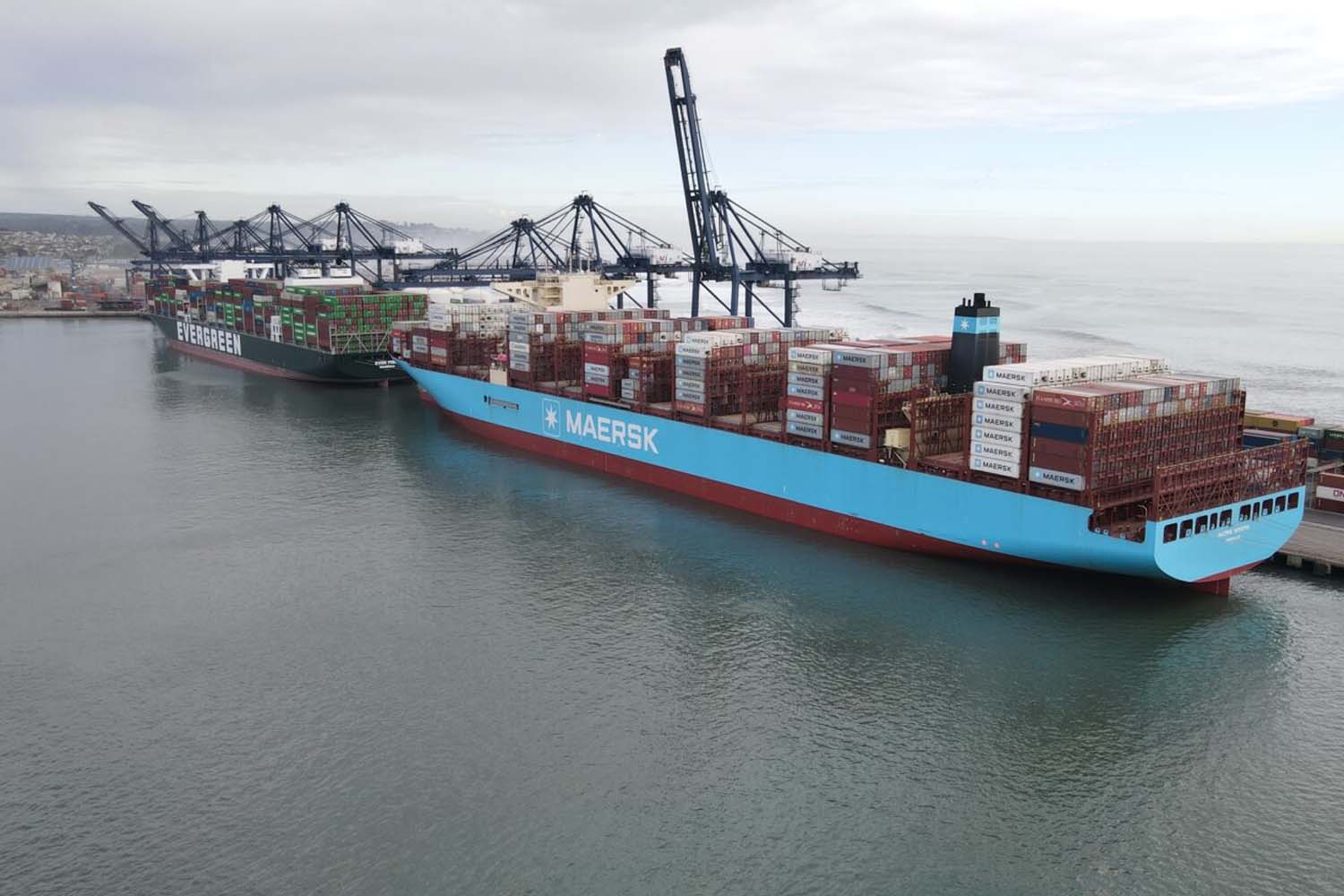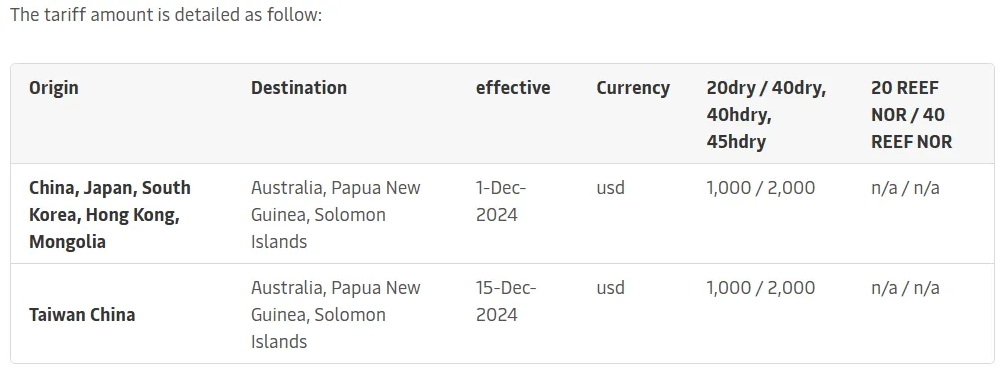Aktuelle Nachrichten über Maersk Peak Season Surcharge 2024
Es ist sehr wichtig, die Maersk Peak Season Surcharge 2024 zu kennen, da es sich um die letzte Änderung handelt. Maersk, eine der größten Reedereien der Welt, hat für das Jahr 2024 erhebliche Anpassungen seiner Peak Season Surcharge (PSS) angekündigt. Diese Änderungen betreffen mehrere wichtige Schifffahrtsrouten von Asien zu verschiedenen globalen Zielen und spiegeln das Engagement des Unternehmens wider, einen qualitativ hochwertigen Service in Zeiten hoher Nachfrage aufrechtzuerhalten.
Ein Hochsaisonzuschlag (Peak Season Surcharge, PSS) ist eine zusätzliche Gebühr, die von Versandunternehmen in Zeiten hoher Nachfrage erhoben wird. Dies geschieht in der Regel während der Hauptversandzeiten, z. B. in den Monaten vor den großen Feiertagen. Der Zuschlag hilft den Spediteuren, die gestiegenen Betriebskosten zu bewältigen und die Kapazitäten zu optimieren. Für Unternehmen ist es wichtig, diese Zuschläge bei der Planung ihrer Logistik und der Budgetierung der Versandkosten zu berücksichtigen.

Über Maersk
Maersk wurde 1904 gegründet und ist ein weltweit führender Anbieter von integrierter Containerlogistik. Das Unternehmen ist in über 130 Ländern tätig und für sein ausgedehntes Schifffahrtsnetz und seinen zuverlässigen Service bekannt. Als wichtiger Akteur in der Schifffahrtsbranche passt Maersk seine Preisstrategien kontinuierlich an die Marktnachfrage an.
Die wichtigsten asiatischen Häfen sind betroffen
Die Anpassungen der Zuschläge wirken sich auf Sendungen aus den wichtigsten asiatischen Häfen aus:
- China: Häfen wie Hongkong, Shanghai, Ningbo, Shenzhen, Xiamen und Fuzhou stehen im Mittelpunkt dieser Veränderungen.
- Japan: Zu den wichtigsten Häfen gehören Tokio und Yokohama.
- Südkorea: Busan und Incheon sind wichtige Drehkreuze.
- Andere Regionen: Andere wichtige Häfen sind ebenfalls betroffen.
Maersk betreibt mehrere wichtige Seeverkehrsrouten von den wichtigsten asiatischen Häfen in den globalen Raum. Maersk hat vor kurzem seine Politik bezüglich des Hochsaisonzuschlags 2024 geändert. Sie steht in engem Zusammenhang mit den globalen Handelstrends. Bitte achten Sie daher auf diese Trends.
Maersk Peak Season Surcharge 2024 Details
Mit Wirkung vom 6. Dezember 2024 wird Maersk einen PSS von $500 sowohl für Trocken- als auch für Kühlcontainer einführen. Dieser Zuschlag gilt für Sendungen von ostchinesischen Häfen nach Sihanoukville Port, Kambodscha. Diese Anpassung ist Teil der Strategie von Maersk, die gestiegene Nachfrage zu bewältigen und die Zuverlässigkeit des Dienstes während der Hochsaison zu gewährleisten.

Zusätzliche Zuschlagsanpassungen
Maersk hat den PSS auch für Routen von China, Hongkong, Japan, Südkorea und der Mongolei zu Zielen wie Neuseeland, Fidschi und Französisch-Polynesien geändert. Ab dem 24. Dezember beträgt der Aufschlag $1.000 für 20-Fuß-Container und $2.000 für 40-Fuß- und 45-Fuß-Container.

Darüber hinaus werden die Zuschläge von Fernost nach Australien, Papua-Neuguinea und den Salomonen geändert. Diese Anpassung betrifft Trockencontainer mit einer Gebühr von $1.000 für 20-Fuß-Container und $2.000 für größere Container.

Maersk wird außerdem ab dem 6. Dezember ein PSS für Trocken- und Kühlcontainer von ostchinesischen Häfen nach Sihanoukville Port, Kambodscha, anwenden.

Warum die Maersk PSS-Gebühren von Bedeutung sind
Der Hochsaisonzuschlag (Peak Season Surcharge, PSS) ist ein wichtiger Bestandteil der Versandkosten in Zeiten hoher Nachfrage. Ähnlich wie bei den Spitzenpreisen in der Reisebranche hilft der PSS den Schifffahrtsunternehmen bei der Kapazitätssteuerung und der Aufrechterhaltung des Serviceniveaus. Die weltweite Hochsaison im Versand dauert in der Regel von April bis November und fällt mit der erhöhten Verbrauchernachfrage und den Urlaubsvorbereitungen zusammen.
Dabei handelt es sich um eine zusätzliche Gebühr, die von vielen Reedereien während der Hochsaison erhoben wird, ähnlich wie die Preiserhöhungen während der Hauptreisezeit, etwa zum chinesischen Neujahr. Die Hochsaison für die weltweite Schifffahrt dauert in der Regel von April bis November jeden Jahres.
Über Änderungen der Versandkosten auf dem Laufenden bleiben
Für Verlader und Spediteure ist es wichtig, über diese Veränderungen informiert zu sein. Die Maersk Peak Season Surcharge 2024 unterstreicht den dynamischen Charakter der Schifffahrtskosten und die Bedeutung einer entsprechenden Anpassung der Logistikstrategien.
Wenn Unternehmen diese Anpassungen kennen, können sie ihre Versandpläne besser planen und mögliche Kostensteigerungen in Spitzenzeiten einkalkulieren.
Sie können eine kurze Versandanfragen oder erfüllen Sie unsere Formular für Frachtangebote um Ihren Schiffsplan in der linken Zeit von 2024 zu fangen.










